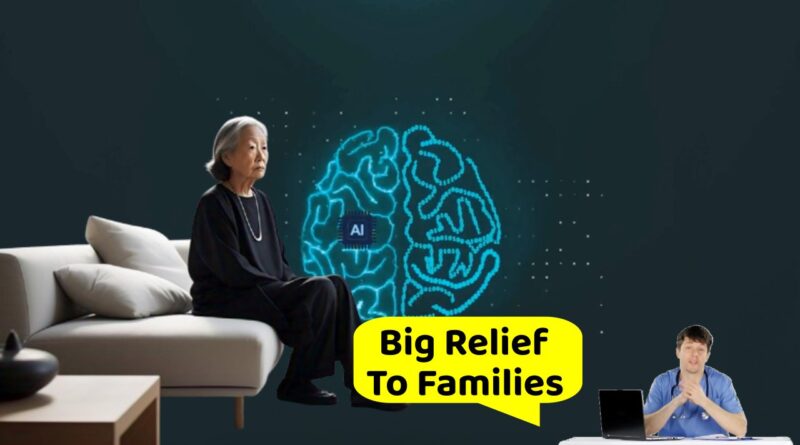AI Predicts Early Dementia: A Game-Changer for Brain Health Of Seniors
“Imagine if we could predict dementia years before it starts—giving families time, giving elders hope, and giving doctors a head start. Well… that future is no longer fiction. It’s happening now. And it’s powered by artificial intelligence.”
Hey there, welcome back to the channel where we turn cutting-edge science into real-life solutions you can understand and use. If you care about your brain health, your family, or your community—stick around, because what I’m about to share could change lives.
Researchers from the University of California, Irvine just made a groundbreaking discovery:
They used machine learning algorithms to predict dementia risk up to two years in advance—and not just in any group, but in one that has been overlooked for decades: American Indian and Alaska Native elders.
Now you might ask—why is this such a big deal?
Well, not only is this the first large-scale study of its kind focused on this underserved population, but it’s also a glimpse into a future where technology + compassion = early detection and prevention.
Let’s break it down:
- They analyzed seven years of electronic health records—we’re talking 17,000+ elders.
- They used three powerful machine learning models: XGBoost, LASSO, and Logistic Regression.
- The AI looked at everything from blood pressure, BMI, hospital visits, and even lesser-known factors like healthcare access patterns.
💡 The result?
A powerful system that could flag early warning signs of dementia, often hidden in plain sight.
Imagine the possibilities here:
If AI can pick up on subtle clues, doctors can act early, families can prepare, and patients can live better, longer.
Let’s talk heart-to-heart for a second.
Dementia doesn’t just affect memory—it affects everything:
- Daily independence
- Emotional well-being
- Family relationships
- Financial stability
In American Indian and Alaska Native communities, where access to specialized care can be limited, early intervention is EVERYTHING.
With AI, we could help prevent late diagnoses, reduce suffering, and even delay or slow down the disease with the right strategies.
Here’s something fascinating…
The AI uncovered new predictors that traditional studies often miss. Not just the obvious ones like age and high blood pressure, but things like:
- Emergency room visits
- Fluctuations in vital signs (Coefficient of Variation)
- Infrequent doctor follow-ups
These are subtle patterns that your doctor might not connect—but a well-trained AI can.
It’s not about replacing doctors—it’s about giving them superpowers.
You’re probably wondering, “Okay, but what can I do right now to reduce my dementia risk?”
Here are science-backed tips anyone can start today:
✅ Stay mentally active – Puzzles, reading, even learning a new language
✅ Eat brain-boosting foods – Think berries, leafy greens, and omega-3 rich fish
✅ Control your blood pressure and sugar levels
✅ Get moving – Just 30 minutes of walking a day can work wonders
✅ Nurture social connections – Isolation increases dementia risk
✅ Get regular health check-ups – Especially for cholesterol and heart health
And if you’re caring for an elder loved one, be observant. Subtle changes—confusion, misplacing items, even sleep disturbances—can be early signs worth mentioning to a doctor.
This isn’t just a tech story—it’s a justice story.
For too long, underserved communities have been left out of medical innovation. This study proves that AI can bridge that gap—if we use it wisely and ethically.
And it doesn’t stop with dementia. Machine learning is already helping detect diabetes, heart disease, and even depression.
The future of health isn’t just digital—it’s inclusive, data-driven, and deeply human.
So, next time someone says AI is just for robots and sci-fi… tell them it’s also for grandmas, for veterans, for tribal elders—for people like us.
Because predicting dementia isn’t about fear—it’s about hope.
Hope for early action, better care, and healthier futures.
👍 SHARE if you learned something new.
🔔 Subscribe for more science-backed health stories that matter.
Until next time, stay curious, stay kind—and take care of that beautiful brain of yours. 💙




